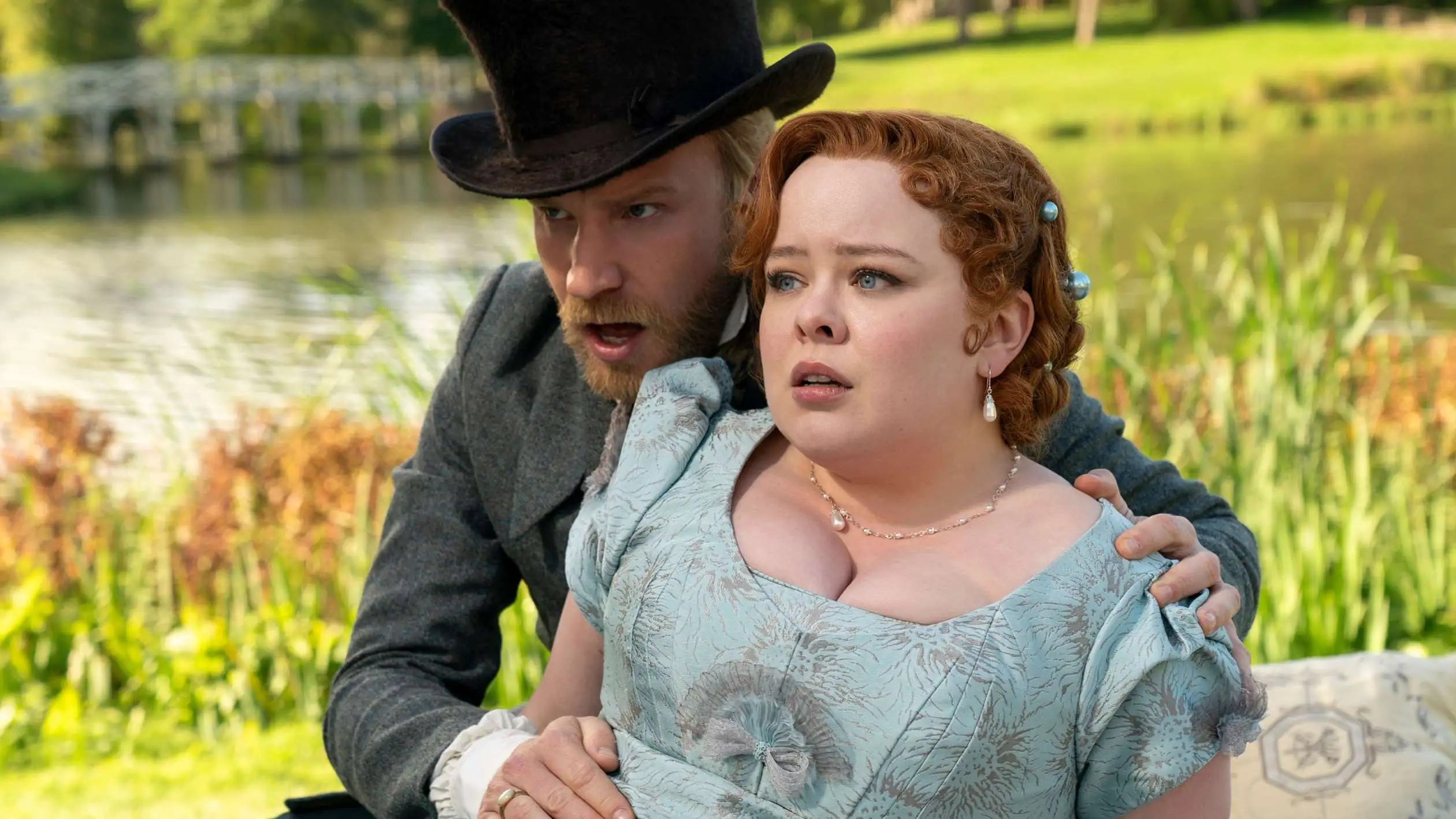After its spectacular debut at Sundance in January that led to a costly acquisition by Netflix, Chloé Domont's big-budget romantic thriller "Fair Play" finally made its international debut at TIFF. The joke (mostly) about the implosion of a secret relationship between two hedge fund analysts has lost none of its urgency, thanks in large part to Phoebe Dynevor's incredible performance and writer-director Domont's unwavering vision. .
We first meet Emily de Dynevor, an analyst at an unscrupulous New York financial firm, who turns her back on the enthusiastic revelers. She stands alone on a cold ledge and smokes a cigarette. She is soon joined by Luke (the always handsome Alden Ehrenreich), her undercover colleague and lover. She takes her to the party (her brother's wedding), where her uncle calls her "the prettiest girl in the room", and runs away before Luke can tell him that she is much more than that. Emily clearly doesn't feel comfortable in this world, but the chemistry between her and Luke isn't there. Soon they make love in the bathroom and menstrual blood stains their wedding clothes. A ring falls from his pocket, he immediately becomes engaged and their passion ignites.
The next day, they wake up on the floor of the apartment where she landed . . after more sex. It's 4:30 in the morning. 1 p.m., and the two are simultaneously getting ready for the day, making coffee, putting on their perfectly fitting sweats (and Em's six-inch heels), and just splitting up on the way to the train, a tactic to hide the their relationship. , which violates company policy, the rest of the office. They are equals in the company, ambitious analysts eager for promotion. When one of the portfolio managers resigns in a fit of physical, histrionic rage that results in a security call, both are eager to take his place. Em hears that it will be Luke, but when the opposite becomes true, their carefully calculated careers (and romances) begin to fall apart.
With subtle changes in dialogue and striking visual cues, Domont's well-structured plot and skillful direction show the final total destruction of this relationship. When Em gets the first call at 2 in the morning. After hearing the news of her promotion, Luke stays awake until he returns, fearing that he has been attacked. He later turns the tables and accuses her of sleeping her way to the top. That first morning the lovers kissed while making love; A moment later, they're fast asleep in their bed, then Em is alone on the couch, until one morning Luke is nowhere to be found. Their separation literally becomes an abyss.
In "Fair Play", there are repeated references to Em and Luke's different economic backgrounds. They are both members of the Ivy League, but she is from Long Island and came there on a scholarship. Upon entering the workforce, she faced sexism in ways Luke would never understand. Her until she starts using that same sexism as a weapon to hurt her. When Luke takes lessons with a motivational speaker who barely hides his misogynistic techniques, she uses her new tools to go further. At one point, Luke says that she dresses "like a cupcake," a denial that forces him to question not only his wardrobe but also his entrepreneurial instincts.
Although they are technically competent and equally committed to this work. It's clear from the start that their instincts and work ethic make them better employees. However, Luke clings to a sense of entitlement, as if this job and this life are his because he has wanted them for so long. This kind of entitlement is a luxury for Em, who has worked hard for as long as she can remember.
Along with her in-depth analysis of corporate politics and sexism, Domont also study the dynamics at play in your sexual relationship. At first passion and carnal lust are the same thing; They are partners in mutual pleasure, and Luke attacks Em. But as his star at work rises, her resentment manifests itself in her helplessness, then in his ability to refuse sex, and finally in her strength. Although the metaphor is sometimes harsh, it is used effectively to show that male violence is a weakness, not a strength.
Ehrenreich addresses the plot of Lucas as a companion to "I Even Supported Him." a manic nemesis with self-confidence, but this is Dynevor's film through and through. Her strength mostly comes from her reserved nature in public, so Luke sees her as more relaxed. But as the stress at work and at home increases, he must find a way to charm all the men in her life without them even knowing it.
For much of the film, Dynevor maintains her rigid, imposing body in her style. but uncomfortable leaps, which allow your emotions to express themselves only in short bursts of anger and joy or stress on your face. This control over her facial expression becomes more difficult as Luke's behavior becomes more erratic. Yet even as she projects a version of herself, Dynevor's extraordinary performance shows the tension that this dual identity places on her, whether through a deep breath here, a hidden expression of sadness there, or a slight tremor in her chest.
Em finally lets it all out with a passionate speech and a scene heavily based on George Cukor's classic "Gaslight," starring Ingrid Bergman. Fans of this film, which has given rise to millions of misinterpretations, will be happy to see Domont clearly understand that the expression has its roots not only in a generic manipulation of a person's reality, but also in the power dynamics of a couple and their public and private perception. Domont's homage in Dialogue and Block is far more deserved than most modern allusions to the term (which, interestingly, is never uttered in “Fair Play”).
Domont's perfect script sometimes becomes too theatrical, and his big monologues and stiff dialogue don't help the film's limited and repetitive settings. Film. However, her moving mastery of underlying tensions, her in-depth examination of power dynamics in professional and personal relationships, and the creation of exceptional performances demonstrate that Domont is a director with a unique voice.












